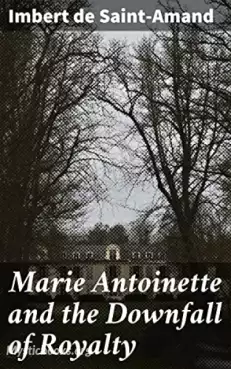
Timeline
Title
Country/Nationality
Imbert de Saint-Amand
Arthur-Léon-Georges Imbert de Saint-Amand, born onNovember 22, 1834 in Paris where he died on June 22, 1900, is a French diplomat and historian.
Born in family of the Rue Jean-Goujon , Marie-Flore Domon and Baron Jean-Bernard Martha colonel Dragoons , he was a pupil of the Lycee Bonaparte . After his license in literature and law, he entered, in 1855, the Ministry of Foreign Affairs . He successively became deputy deputy director of the political direction in 1866, secretary of the first class at the disposal of the minister in 1869, minister plenipotentiary of 2nd class in 1877 and first class in 1882, and was almost constantly in charge of particular jobs in the central administration of the ministry.
Imbert de Saint-Amand made himself known through a series of publications on the women of the old court of France, the First Empire and the Restoration, including women of the court of Louis XIV, of the court of Louis XV , of the last years of the reign of Louis XV, the heyday of Marie-Antoinette and the end of the Ancient Régime, then, among others, Marie-Antoinette at the Tuileries, the last year of this one, the agony of the royalty, the citizen Bonaparte, the wife of the First Consul, the court of the Empress Joséphine, the heyday of Marie-Louise, Marie-Louise and the decline of the Empire, the Duchess of Berry, the Duchess of Angoulême, etc. Apart from these two series he published portraits of the court last Valois and the last Bourbons, of French and xviii century, of Abbot Deguerry and Delphine de Girardin .
Decorated with the Legion of Honor, the August 11, 1863, he was promoted to officer, on August 6, 1870.
Books by Imbert de Saint-Amand

Marie Antoinette and the Downfall of Royalty
Paris in 1792 is no longer what it was in 1789. In 1789, the old French society was still brilliant. The past endured beside the present. Neither names nor escutcheons, neither liveries nor places at court, had been suppressed. The aristocracy and th...